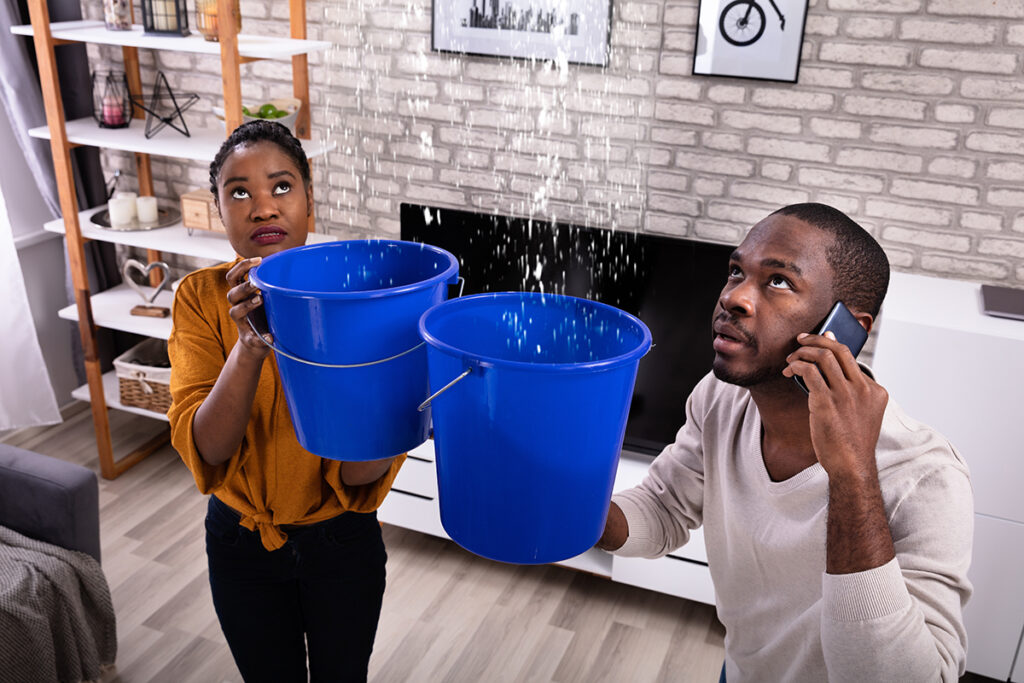Turn off the water source: If the water damage is being caused by a burst pipe, a leaking faucet, or any other source of water, turn off the water source immediately. This will help to prevent further water from entering your home.
Turn off the electricity: If there is standing water in your home, turn off the electricity at the main breaker panel to avoid any electrical hazards.
Document the damage: Take photos or videos of the damage, and make a list of all affected items and areas.
Contact your insurance company: Notify your insurance company of the damage as soon as possible. They can help guide you through the next steps and advise you on any coverage you may have.
Remove standing water: Use a wet vacuum or hire a professional restoration company to remove any standing water from your home. This will help prevent further damage and mold growth.
Dry out the affected areas: Use fans, dehumidifiers, and open windows to help dry out the affected areas. If there is significant damage, you may need to hire a professional restoration company to properly dry out your home.
Disinfect and clean: Use a disinfectant to clean and disinfect all affected areas. This will help prevent mold growth and mitigate any potential health hazards.
Remember, the sooner you address water damage in your home, the better. Delaying repairs can lead to more extensive damage and increased repair costs. Contact Us Today to see how we can help!
Water damage can be caused by a variety of factors, including floods, burst pipes, leaking roofs, overflowing toilets or sinks, and more. Regardless of the cause, it’s important to take swift action to mitigate the damage and prevent potential health hazards.
If you have extensive water damage, it’s often best to hire a professional restoration company to handle the cleanup and repairs. These companies have specialized equipment and expertise to properly dry out your home and prevent further damage. They can also help you navigate the insurance claims process and work with your insurance company to ensure you receive the coverage you’re entitled to.
In addition to the steps I mentioned earlier, there are a few other things you can do to prevent water damage in your home:
Regularly inspect and maintain your plumbing: Check for leaks, cracks, or other damage in your pipes and plumbing fixtures, and repair any issues promptly.
Keep gutters and downspouts clean: Clean out your gutters and downspouts regularly to ensure that rainwater is directed away from your home.
Install a sump pump: If you live in an area prone to flooding or heavy rain, consider installing a sump pump to help prevent water damage in your basement or crawl space.
Install water detection devices: Water detection devices can alert you to leaks or floods before they cause significant damage.
By taking these preventative measures and addressing water damage promptly, you can help keep your home and belongings safe and minimize the potential impact of water damage.

